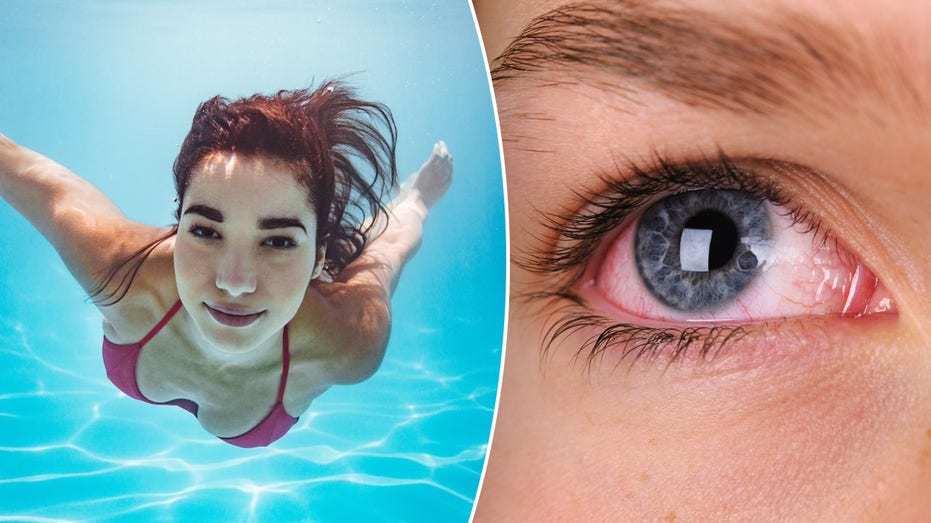Hot summer days include plenty of pool or beach time for many people — but it’s important to stay safe while swimming.
While it may be tempting to open your eyes underwater, experts warn that prolonged exposure could put your vision at risk.
Fox News Digital spoke with Brian Boxer Wachler, M.D., an ophthalmologist in Beverly Hills, California, who is also a medical reviewer with All About Vision, an online resource, about what happens when people take a peek while swimming.
ASK A DOCTOR: ‘WHY ARE MY EYES OFTEN BLOODSHOT?’
A quick glance likely won’t be harmful, the expert said — but extended periods of underwater peeping could cause problems.
“Usually when people open their eyes underwater, the [eyes] begin to feel irritated and they will close their eyes pretty quickly,” Wachler said.
When swimming in pool water, the chlorine can irritate the eyes, he warned.
Chlorine can cause damage to the outer layer cells that protect the cornea, Dr. Muriel Schornack, a Mayo Clinic optometrist in Minnesota, stated on the clinic’s website.
NEBRASKA BABY BORN WITH CATARACTS HAS 3 EYE SURGERIES TO SAVE HER SIGHT: ‘I JUST KEPT PRAYING’
As a result, the eye may become red, irritated or sensitive to light, the doctor warned.
You may also notice blurred vision.
“A lot of folks who are highly nearsighted or highly farsighted like to wear their contact lenses while they’re swimming — and if chlorine soaks into those lenses, now you’ve got a reservoir of chlorine on the surface of the eye that’s likely to do damage,” Schornack noted on Mayo Clinic’s site.
ASK A DOCTOR: ‘WHY AM I HEARING MY HEARTBEAT IN MY EARS?’
With saltwater or untreated freshwater, the effects can be even harsher, and can potentially introduce bacteria into the eyes, Wachler warned.
“Microscopic organisms are found in various bodies of water, and can be both beneficial and harmful,” he said.
Bacteria such as E. coli can thrive in contaminated freshwater, while saltwater teems with decomposers like Vibrio, according to the ophthalmologist.
“Viruses like those causing hepatitis A can linger in polluted water,” he said.
“Protozoa such as Giardia can cause diarrhea if ingested from untreated sources, while molds like Aspergillus may be found in damp areas around freshwater.”
If you’ve been swimming with your eyes open for an extended period, watch out for signs of irritation like redness, itchiness and a burning sensation, Wachler advised.
“You might also experience watery eyes or increased sensitivity to light,” he said.
“These are usually temporary and go away on their own.”
CLICK HERE TO SIGN UP FOR OUR HEALTH NEWSLETTER
If you notice a thicker discharge, have trouble seeing or experience severe pain, it could be a sign of infection and warrants a trip to the doctor.
For more Health articles, visit www.foxnews/health
For those who want to look underwater while swimming, experts recommend wearing goggles to protect the eyes.
Source
